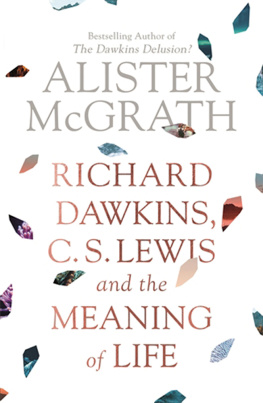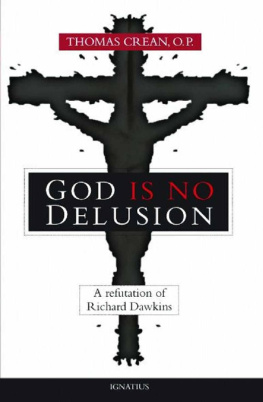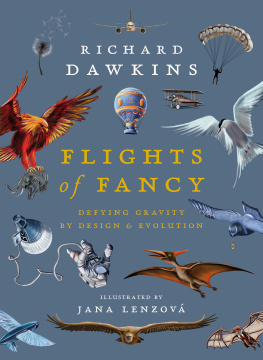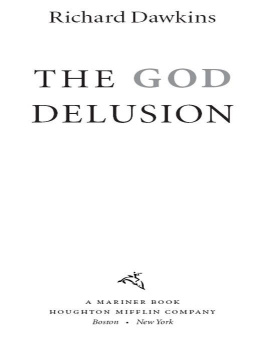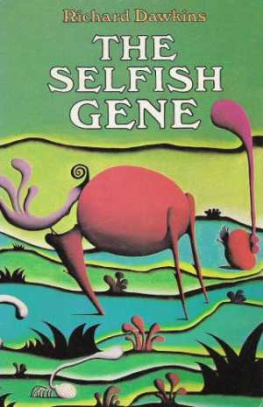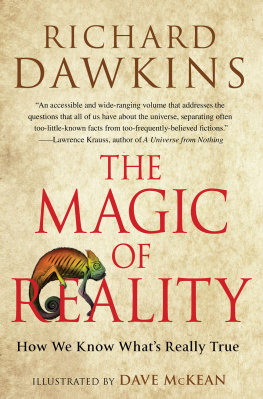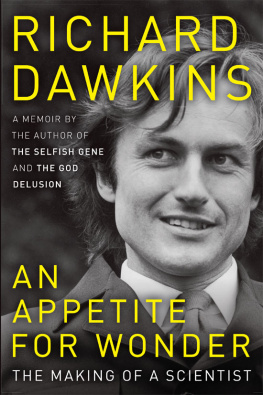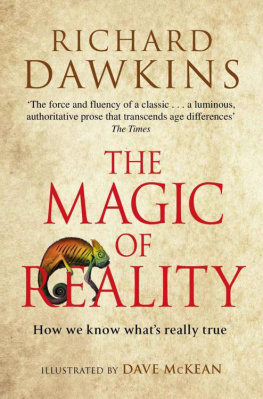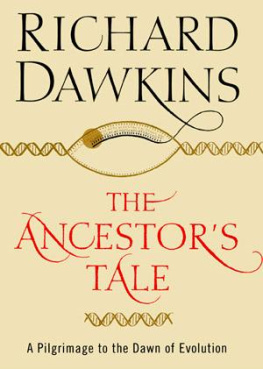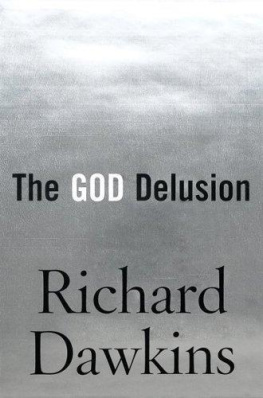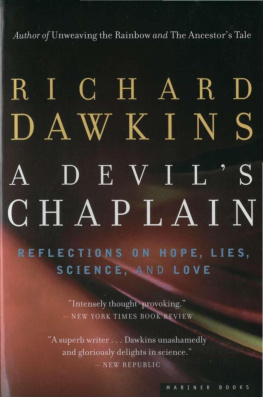Alan Grafen - Richard Dawkins: How a Scientist Changed the Way We Think
Here you can read online Alan Grafen - Richard Dawkins: How a Scientist Changed the Way We Think full text of the book (entire story) in english for free. Download pdf and epub, get meaning, cover and reviews about this ebook. year: 2006, publisher: OUP, genre: Art. Description of the work, (preface) as well as reviews are available. Best literature library LitArk.com created for fans of good reading and offers a wide selection of genres:
Romance novel
Science fiction
Adventure
Detective
Science
History
Home and family
Prose
Art
Politics
Computer
Non-fiction
Religion
Business
Children
Humor
Choose a favorite category and find really read worthwhile books. Enjoy immersion in the world of imagination, feel the emotions of the characters or learn something new for yourself, make an fascinating discovery.

- Book:Richard Dawkins: How a Scientist Changed the Way We Think
- Author:
- Publisher:OUP
- Genre:
- Year:2006
- Rating:3 / 5
- Favourites:Add to favourites
- Your mark:
- 60
- 1
- 2
- 3
- 4
- 5
Richard Dawkins: How a Scientist Changed the Way We Think: summary, description and annotation
We offer to read an annotation, description, summary or preface (depends on what the author of the book "Richard Dawkins: How a Scientist Changed the Way We Think" wrote himself). If you haven't found the necessary information about the book — write in the comments, we will try to find it.
Alan Grafen: author's other books
Who wrote Richard Dawkins: How a Scientist Changed the Way We Think? Find out the surname, the name of the author of the book and a list of all author's works by series.
Richard Dawkins: How a Scientist Changed the Way We Think — read online for free the complete book (whole text) full work
Below is the text of the book, divided by pages. System saving the place of the last page read, allows you to conveniently read the book "Richard Dawkins: How a Scientist Changed the Way We Think" online for free, without having to search again every time where you left off. Put a bookmark, and you can go to the page where you finished reading at any time.
Font size:
Interval:
Bookmark:
Robert Aunger, Senior Lecturer in Evolutionary Public Health, London School of Hygiene and Tropical Medicine, author of The Electric Meme, and editor of Darwinizing Culture.
David P. Barash, Professor of Psychology, University of Washington, author of Madame Bovarys Ovaries: A Darwinian look at literature, The Myth of Monogamy, Revolutionary Biology, and other books.
Sir Patrick Bateson, FRS. Emeritus Professor of Ethology, Cambridge University, co-author of Design for a Life: How Behaviour Develops .
Seth Bullock, Senior Lecturer in the Science and Engineering of Natural Systems, School of Electronics and Computer Science, University of Southampton.
Helena Cronin, Co-Director, London School of Economics Centre for Philosophy of Natural and Social Science, organizer of the Darwin@LSE programme, and author of The Ant and the Peacock .
Martin Daly, Professor of Psychology, McMaster University, Canada, co-author of The Truth About Cinderella and other books.
Marian Stamp Dawkins, Fellow in Biological Sciences at Somerville College and Professor of Animal Behaviour, Zoology Department, Oxford University, author of Through Our Eyes Only and Animal Suffering .
Daniel C. Dennett, Professor of Philosophy, Tufts University, author of Darwins Dangerous Idea, Consciousness Explained, Freedom Evolves , and other books.
David Deutsch, Professor, Centre for Quantum Computing, Clarendon Laboratory, Oxford University, author of The Fabric of Reality .
Alan Grafen, Professor of Theoretical Biology, Oxford University.
A. C. Grayling, Professor, Department of Philosophy, Birkbeck College, London University, author of The Meaning of Things, What is Good?, Life, Sex and Ideas: The Good Life Without God, Philosophy, and other books.
David Haig, Professor, Department of Organismic and Evolutionary Biology, Harvard University, author of Genomic Imprinting and Kinship.
Michael Hansell, Professor, Institute of Biomedical and Life Sciences, Glasgow University, author of Animal Architecture and other books.
The Rt Revd Richard Harries, Bishop of Oxford, author of Art and the Beauty of God, God Outside the Box, and other books.
Sir John Krebs, FRS. Professor, Department of Zoology, and Principal, Jesus College, Oxford University; former chairman, Food Standards Agency.
Marek Kohn, Visiting Fellow at the School of Life Sciences, University of Sussex, author of A Reason for Everything, As We Know It: Coming to Terms with an Evolved Mind, The Race Gallery, and other books.
Randolph M. Nesse, Professor of Psychiatry and Professor of Psychology, University of Michigan, author of Why We Get Sick and other books.
Steven Pinker, Johnstone Family Professor, Department of Psychology, Harvard University, author of The Language Instinct, How the Mind Works , The Blank Slate , and other books.
Philip Pullman, author of His Dark Materials trilogy, Ruby in the Smoke , and other books.
Andrew F. Read, Professor of Natural History, Edinburgh University.
Matt Ridley, writer and former journalist, author of Nature via Nurture, Genome, The Red Queen, and of a forthcoming biography of Francis Crick.
Michael Ruse, Professor of Philosophy, Florida State University, author of The Evolution Creation Struggle, Darwin and Design, and other books.
Ullica Segerstrle, Professor of Sociology, Illinois Institute of Technology, Chicago, author of Defenders of the Truth, and editor of other books.
Michael Shermer, founding publisher of Skeptic magazine, contributing editor of Scientific American, author of How We Believe: The Science of Good and Evil, and In Darwins Shadow: The Life of Alfred Russel Wallace .
Kim Sterelny, Professor of Philosophy, Victoria University, Wellington, and the ANU, Canberra, author of Thought in a Hostile World: The Evolution of Human Cognition, Dawkins vs Gould: Survival of the Fittest , and other books.
Margo Wilson, Professor of Psychology, McMaster University, Canada, co-author of The Truth About Cinderella and other books.
In 1976, a young Oxford biologist published a book called The Selfish Gene. To Richard Dawkins own surprise and sometimes alarm, it became widely discussed, often misunderstood, and highly influential. The Selfish Gene is now well established as a classic exposition of evolutionary ideas for academic and lay readers alike. Its author, propelled to fame, went on to display the range and depth of his analytical skills and literary abilities in a string of best-sellers: The Extended Phenotype (intended primarily for fellow biologists), The Blind Watchmaker, River Out of Eden, Climbing Mount Improbable, Unweaving the Rainbow, and The Ancestors Tale. A collection of his essays was published as A Devils Chaplain. Increasingly involved in public debate on science and rationalism, Dawkins has become a familiar figure in the media, and a leading champion of atheism. To find professional scientists with a similar public profile on non-scientific issues, one has to return to the days of J. B. S. Haldane and before him T. H. Huxley in the UK, and perhaps Einstein in the USA. In 1995, Dr Charles Simonyi endowed a chair for the Public Understanding of Science at Oxford University that enabled Dawkins, as the first holder, to concentrate on his writing.
This collection of essays considers the range of Dawkins influence as scientist, writer, and public figure. Inevitably, though, his seminal work, The Selfish Gene , takes pride of place among his achievements and thus forms the primary focus of this volume. The Selfish Gene reached so many audiences that one person is unlikely to know of them all. The essays of the first few sections illustrate the range of the books influence, with distinguished authors from many fields explaining how its ideas have affected them personally and professionally.
We begin with accounts by four biologists, whose work in parasitology, gender differences, communication, and animal artefacts has been inspired by Dawkins. The second section focuses on the central text itself and looks at its unfading pedagogical power, its intellectual contribution, and its historical place in the sociobiology debates. In The Gene Meme, the Harvard geneticist David Haig contributes a mind-twisting tribute to The Selfish Gene by first using the history of the word gene to illustrate the concept of the meme, and then employing that discussion to consider how well the concept of meme stands up.
The most impressive aspect of The Selfish Gene is that it is argued from first principles and with complete logic. Logic is the common currency of academe, and it is no surprise that a wide range of thinkers have embraced the books arguments and gone on to extend them in their own directions. In the third section a philosopher, a computer scientist, a physicist, and a cognitive scientist describe how they have pursued the logic of Dawkins work, and The Selfish Gene in particular, in their respective fields.
Dawkins writing and public appearances have, of course, engendered considerable controversy and resistance, though much of the latter, as concerns selfish gene ideas, has been rooted in misunderstanding. A book published on the thirtieth anniversary of The Selfish Gene , edited by two of his former graduate students, naturally has mainly supporters and defenders as contributors, but we also include some antiphonal voices, specifically in the middle section, in which three, admittedly friendly, critics discuss where in their view Dawkins has gone wrong.
The most controversial applications of selfish gene ideas have been to humans, and these form the theme of the fifth section. The issues discussed will be familiar to many readers through their regular irruptions into the popular media.
Font size:
Interval:
Bookmark:
Similar books «Richard Dawkins: How a Scientist Changed the Way We Think»
Look at similar books to Richard Dawkins: How a Scientist Changed the Way We Think. We have selected literature similar in name and meaning in the hope of providing readers with more options to find new, interesting, not yet read works.
Discussion, reviews of the book Richard Dawkins: How a Scientist Changed the Way We Think and just readers' own opinions. Leave your comments, write what you think about the work, its meaning or the main characters. Specify what exactly you liked and what you didn't like, and why you think so.

